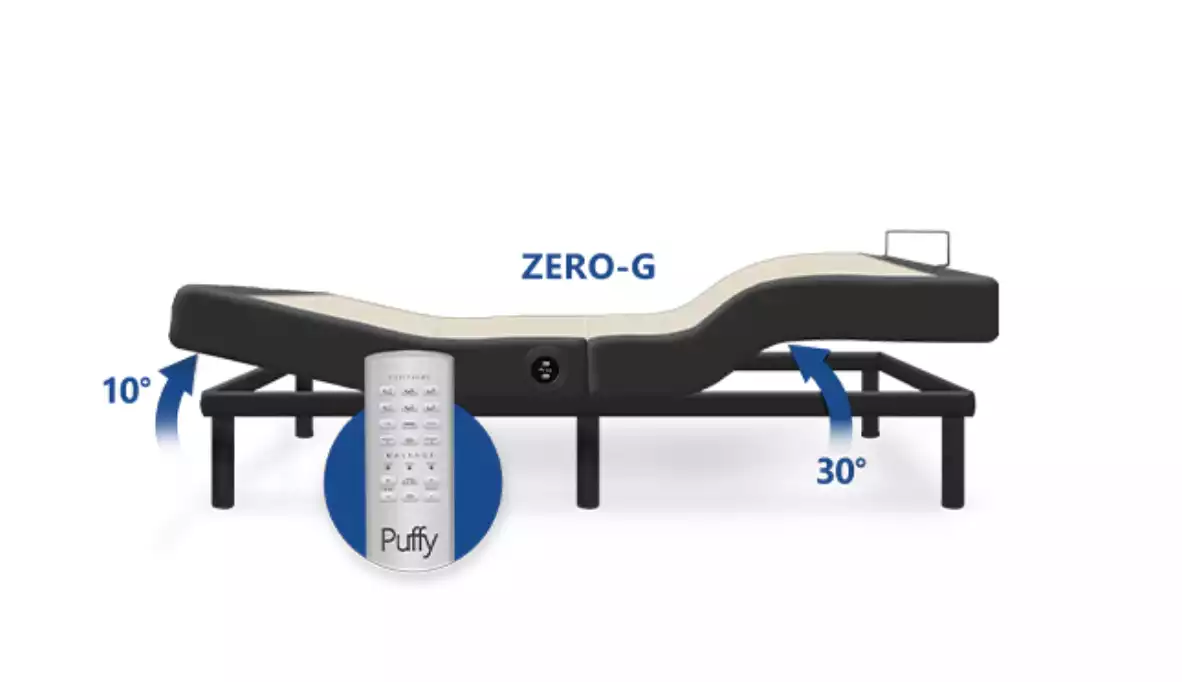How to Sleep with Intercostal Muscle Strain: (Expert Sleep Tips & Tricks)

Dealing with an intercostal muscle strain can be a challenging experience, as the pain and discomfort associated with this injury can significantly impact one’s ability to enjoy a restful night’s sleep. The intercostal muscles, located between the ribs, play a critical role in breathing and stabilizing the upper body. An injury to these muscles can make even the simplest movements, such as taking a deep breath or turning in bed, quite painful.
In this article, we will explore the causes, symptoms, and treatments for intercostal muscle strain, with a focus on helping you achieve better sleep during the healing process. We will provide tips on choosing the right mattress, adjusting sleep positions, and managing pain to ensure a more comfortable and restorative sleep experience. We will also discuss the importance of consulting with healthcare professionals for personalized advice tailored to your specific circumstances.
Join us as we delve into the intricacies of intercostal muscle strain and its impact on sleep, and discover practical strategies to help you rest more comfortably and accelerate your recovery journey.
Quick Takeaway Summary
1. Find the right position:
Choose a position that puts the least amount of strain on your intercostal muscles. This may vary depending on the location of the strain. Many people find relief by sleeping on their back with a pillow supporting their knees or on their unaffected side with a pillow between their knees.
2. Support your upper body:
Use pillows to prop yourself up at a comfortable angle or sleep in a reclining position. This can help reduce pressure on your intercostal muscles and make breathing easier.
3. Practice deep, slow breathing:
Taking slow, deep breaths can help relax your intercostal muscles and improve your overall comfort. Breathe in deeply through your nose, filling your lungs, and then exhale slowly through your mouth.
4. Avoid lying flat:
Lying completely flat can put more pressure on your intercostal muscles, so try to maintain a slightly elevated position while sleeping.
- Adjustable height options
- UBS ports
- LED lighting
- "Zero Gravity" position for back pain relief
- Vibrating massage feature
- Much More
What is Intercostal Muscle Strain?

Intercostal muscle strain refers to an injury to the muscles located between the ribs, known as the intercostal muscles. These muscles play a crucial role in stabilizing the upper body and assisting in the process of breathing by helping the ribcage expand and contract.
Causes:
Intercostal muscle strain can occur due to various factors, such as:
- Sudden or forceful twisting of the torso
- Repetitive movements involving the upper body, such as rowing, lifting, or playing certain sports
- Direct impact or trauma to the rib area, like a fall or a blow to the chest
- Prolonged, forceful coughing or sneezing
Symptoms:
Symptoms of intercostal muscle strain may include:
- Sharp, localized pain in the rib area, which may worsen during deep breaths, coughing, laughing, or certain movements
- Tenderness or swelling at the site of injury
- Restricted range of motion in the upper body
- Difficulty taking deep breaths due to pain
Treatment:
Treatment for intercostal muscle strain typically involves rest, pain management with over-the-counter pain relievers (as advised by a healthcare provider), and the application of ice or heat packs to alleviate pain and inflammation. Gentle stretching and easing back into daily activities may also be recommended by a healthcare provider or physical therapist as the healing progresses.
If you suspect an intercostal muscle strain, it’s essential to consult with a healthcare professional for an accurate diagnosis and personalized treatment plan.
How Intercostal Muscle Strain Can Impact Sleep

Intercostal muscle strain can significantly impact sleep quality and comfort due to pain and discomfort associated with the injury. The intercostal muscles are located between the ribs and play a crucial role in breathing and stabilizing the upper body. When these muscles are strained or injured, the following sleep-related issues may arise:
Pain:
Intercostal muscle strains can cause sharp, localized pain in the rib area, which may worsen during deep breaths, coughing, laughing, or certain movements. This pain can make it difficult to find a comfortable sleeping position and may disrupt sleep throughout the night.
Limited mobility:
The discomfort and pain associated with intercostal muscle strains can limit mobility, making it challenging to change positions or get in and out of bed.
Breathing difficulties:
Since the intercostal muscles are involved in the expansion and contraction of the ribcage during breathing, a strain can lead to difficulty taking deep breaths while lying down. This may cause discomfort and restlessness during sleep.
Sleep position:
The strain may make certain sleep positions, particularly lying on the affected side, uncomfortable or even unbearable. This can disrupt sleep patterns and make it difficult to achieve restful sleep.
Tips for How to Get Sleep with Intercostal Muscle Strain
- Adjustable height options
- UBS ports
- LED lighting
- "Zero Gravity" position for back pain relief
- Vibrating massage feature
- Much More
To ease the discomfort and promote better sleep while dealing with an intercostal muscle strain, consider the following tips:
Use pain medication:
Over-the-counter pain relievers like ibuprofen or acetaminophen can help reduce pain and inflammation. Consult your healthcare professional before taking any medication to ensure it’s appropriate and doesn’t interact with other medications you may be taking.
Apply heat or cold therapy:
Using a heating pad or a cold pack can help alleviate pain and reduce inflammation. Apply the heat or cold therapy for 15-20 minutes at a time, several times a day. Make sure to protect your skin by wrapping the pack in a cloth or towel.
Find a comfortable sleep position:
Choose a position that puts the least amount of strain on your intercostal muscles. This may vary depending on the location of the strain. Many people find relief by sleeping on their back with a pillow supporting their knees or on their unaffected side with a pillow between their knees.
Support your upper body:
Use pillows to prop yourself up at a comfortable angle or sleep in a reclining position. This can help reduce pressure on your intercostal muscles and make breathing easier.
Practice deep, slow breathing:
Taking slow, deep breaths can help relax your intercostal muscles and improve your overall comfort. Breathe in deeply through your nose, filling your lungs, and then exhale slowly through your mouth.
Avoid lying flat:
Lying completely flat can put more pressure on your intercostal muscles, so try to maintain a slightly elevated position while sleeping.
Be mindful of your movements:
When getting in and out of bed or changing positions, be careful not to twist or strain the affected area. Move slowly and deliberately to avoid exacerbating the pain.
Consult your healthcare professional:
If your pain worsens or doesn’t improve after a few days, consult your healthcare professional for further evaluation and treatment recommendations.
It’s essential to give your body time to heal and recover from an intercostal muscle strain. Avoid strenuous activities that may aggravate the injury, and follow any treatment recommendations provided by your healthcare professional.
How to Choose a Mattress that is Best for Intercostal Muscle Strain.
- Unbeatable value
- Heavy duty support from wrapped coil system
- Luxury pressure relief
- Removable and washable cover
- Made in the USA
When dealing with intercostal muscle strain, it’s essential to choose a mattress that provides a balance of comfort and support to alleviate pain and promote healing. While individual preferences and needs may vary, the following factors should be considered when selecting a mattress for intercostal muscle strain:
- Support: A supportive mattress will help maintain proper spinal alignment and reduce pressure on the injured area. Look for a mattress that provides adequate support to your back and conforms to your body’s natural curves.
- Pressure relief: A mattress that offers good pressure relief can minimize discomfort by reducing pressure points on the body, including the rib area. Memory foam and latex mattresses are known for their pressure-relieving properties.
- Medium firmness: A medium-firm mattress is often recommended for individuals with intercostal muscle strain as it provides a balance of support and comfort. A mattress that’s too firm may exacerbate pain, while one that’s too soft may not offer adequate support.
- Sleep position: Consider your preferred sleep position when choosing a mattress. Side sleepers may benefit from a slightly softer mattress that conforms to their body, while back sleepers may require a firmer mattress to support their spine.
- Breathability: A breathable mattress can help regulate temperature and provide a comfortable sleep environment, which can be beneficial when dealing with pain and discomfort.
- Trial period and return policy: Since comfort is subjective, it’s crucial to test a mattress before committing. Look for mattresses that offer a trial period, allowing you to try the mattress at home and return it if it doesn’t meet your expectations.
Ultimately, the best mattress for intercostal muscle strain will depend on your unique needs and preferences. It’s essential to consult with a healthcare professional for personalized advice based on your specific circumstances. Trying out different mattresses and taking advantage of home trial periods can help you find the most comfortable and supportive option for your needs.
FAQs
Q: How long does it take for intercostal muscle strain to heal?
A: Intercostal muscle strain healing time can vary depending on the severity of the injury and individual factors. Mild strains may take a few days to a week to heal, while more severe strains could take several weeks or even months. It’s essential to consult with a healthcare professional for personalized advice based on your specific circumstances.
Q: Can I sleep on my side with intercostal muscle strain?
A: It depends on the individual’s comfort level and the location of the strain. If sleeping on your side doesn’t exacerbate pain and allows you to rest comfortably, you may continue to do so. However, if sleeping on your side causes discomfort, try experimenting with different sleep positions, such as sleeping on your back with a pillow for support, to minimize pain and promote healing.
Q: How can I make sleeping more comfortable with intercostal muscle strain?
A: To enhance comfort while sleeping, consider the following tips: use a supportive and pressure-relieving mattress, adjust your sleep position to minimize pain, elevate your head with pillows, and use a body pillow for additional support. Pain management techniques, such as using over-the-counter pain relievers or applying ice/heat packs, can also help alleviate discomfort.
Q: Is it okay to use a heating pad for intercostal muscle strain while sleeping?
A: While using a heating pad can help alleviate pain and promote relaxation, it’s generally not recommended to use a heating pad while sleeping due to the risk of burns and overheating. Instead, apply heat to the affected area for 15-20 minutes before bedtime to help relax the muscles and relieve pain. Always follow the manufacturer’s instructions for safe use of a heating pad and consult with a healthcare professional for personalized advice.
Q: Should I rest or continue with daily activities when dealing with intercostal muscle strain?
A: Initially, it’s crucial to allow your body time to rest and recover from the injury. However, gently easing back into daily activities and performing light stretches, as advised by your healthcare provider or physical therapist, can help promote healing and prevent stiffness. Avoid activities that may exacerbate pain or strain the affected area until the injury has fully healed.





